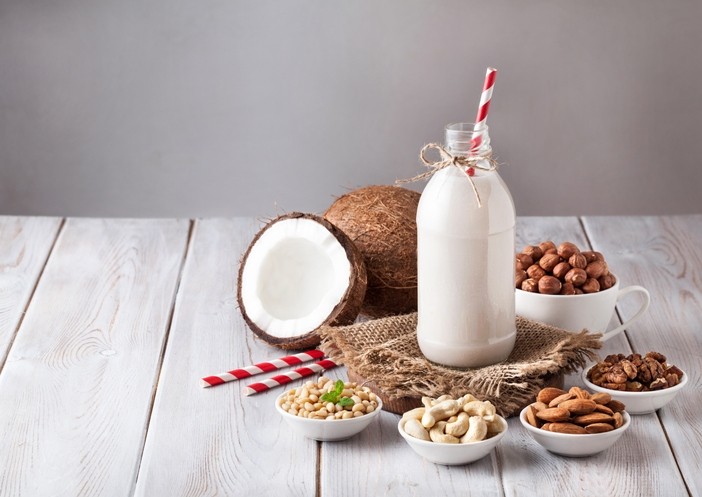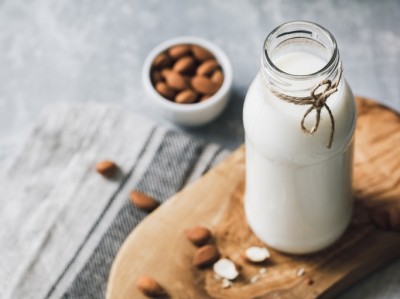Plant-based labels argument continues

Results from a new survey carried out by several Wisconsin dairy groups says customers may be confused about whether non-dairy products are indeed dairy foods and whether they carry the same nutritional value. The Wisconsin Cheese Makers Association (WCMA), the Dairy Farmers of Wisconsin and the Edge Dairy Farmer Cooperative commissioned the study.
However, the Plant Based Foods Association (PBFA) says that from its analysis of the comments received so far, at least 74% of people are in support of using the term 'milk' on the label of plant-based products.
At the end of September the FDA opened up a request for information period to help with its review and modernization of dairy identity standards. Electronic and written comments were originally supposed to cut off on November 27, but this was extended by 60 days to January 25.
Mixed consumer results
A study published in October by the International Food Information Council (IFIC) found that three-quarters of Americans are not confused on whether a product does or does not contain cow’s milk.
The IFIC survey revealed that fewer than 1 in 10 people believe that coconut, almond, soy, cashew and rice milk alternatives contain dairy. It also showed that 43% of people under 45 years old are the most likely to purchased non-dairy milk substitutes.
The new research out of Wisconsin, conducted by Ravel, largely reaffirms IFIC’s conclusion of non-dairy public perception. It used three plant-based dairy cheese substitutes to investigate if the packaging and descriptions are confusing, and the findings were included in comments that WMCA and Edge submitted to the FDA.
The dairy groups' study said only 25% of respondents thought the plant-based alternatives contained milk, which aligns with the IFIC survey finding 75% of people are not confused by the labeling.
Wisconsin dairy reacts
Rebekah Sweeney, director of communications at WMCA, said, “Consumers deserve complete clarity as they choose what to eat, and how to feed their families. Our research proves that mislabeling leads people to believe that the nutritional content of plant-based products is equivalent to that of dairy, which is simply not true and potentially harmful to public health.
“WCMA members encourage the Food and Drug Administration to enforce labeling standards to help consumers make well-informed choices at the grocery store.”
In terms of purchasing behavior, one-quarter of customers said they purchase plant-based cheese alternatives because they believe them to be low in calories (25%) and fat (26%) and without additives (24%).
Patrick Geoghegan, senior VP of marketing at Dairy Farmers of Wisconsin, said, “The Ravel survey findings are similar to other consumer surveys pertaining to food — consumers don’t know what’s in the food they eat regardless of what they hear. The next phase is to understand why consumers associate dairy and non-dairy products with differing attributes.”
Brody Stapel, president of Edge Dairy Farmer Cooperative, said, “The FDA should move to aggressively enforce its existing regulations, which clearly define milk, cheese and other dairy foods as originating from a cow, not a plant.”
PBFA disagrees
The PBFA also submitted comments to the FDA in this debate, calling the labeling restriction 'unnecessary, costly and unconstitutional.'
Michele Simon, executive director of PBFA, said, “We maintain that this entire exercise is a solution in search of a problem. At a time when resources are scarce, our federal government should not be concerned with how 'almond milk' is labeled. Aren’t there higher priorities, such as a safety of our food supply, for FDA to worry about?
“Moreover, the marketplace disruption being pushed by the dairy lobby would hinder innovation, create untenable costs for our members, and ultimately be found unconstitutional, making the entire effort a waste of everybody’s time and resources. We encourage the FDA to abide by free market principles and not restrict labeling to unfairly favor the dairy industry.”
PBFA conducted an analysis of the existing public comments about the labeling and found at least 74% of people are in support of using the term 'milk' on the label of plant-based products.
“Companies selling dairy alternatives are using easy to understand, clear, descriptive, and truthful language on labels. Our members and others in this category, are using common English words that consumers understand: milk, cheese, yogurt and butter," PBFA said.
"To our members, and to consumers, these words represent functionality, form and taste, not necessarily the origin of the primary ingredient."
PBFA also reported that labeling changes cost anywhere between $50,000 and $200,000 per SKU. Multiple PBFA members would have to pay more than $1m each to comply with rule changes, which has the potential to put some out of business.















